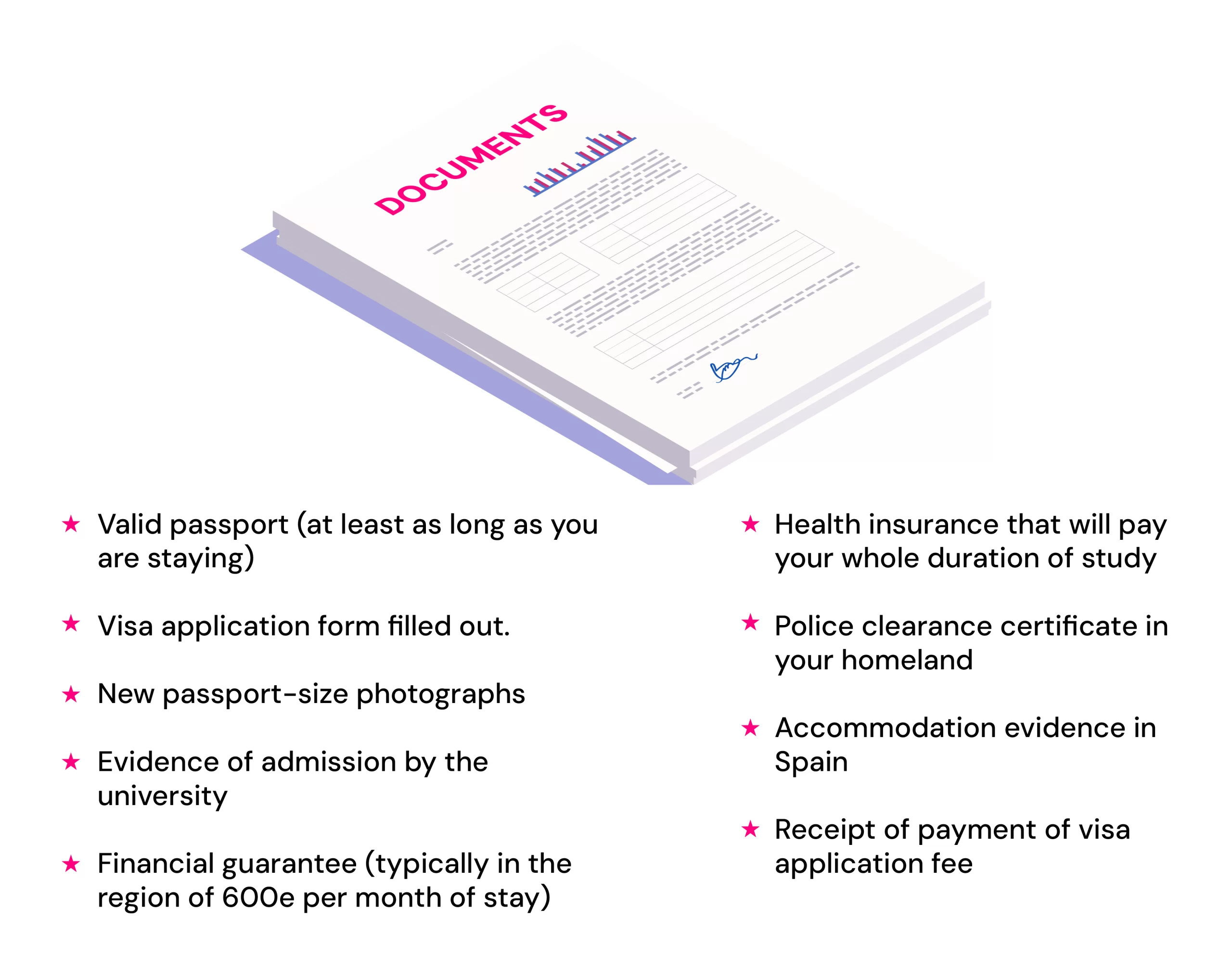Eligibility for OET Exam: Everything You Need to Know
Study in Spain 2025: A Complete Guide for International Students

Spain has long been one of the most coveted study destinations in Europe, offering an ideal combination of academic excellence, rich culture, and a laid-back Mediterranean lifestyle. The cultural experience it provides is one of the key aspects that make Spain a favourite choice for many international students each year, beyond its wealth of top-ranked universities. Whether it’s a bustling city such as Madrid or Barcelona, or a history-rich town such as Salamanca or Granada, studying here places centuries of tradition at your fingertips while you live in a modern cosmopolitan setting.
Whether you wish to study business at a top global university, delve into engineering and technology, or immerse yourself in Spanish language and literature, Spain offers opportunities to match your goals. By 2025, the country is further strengthening its position as a global education hub, with more courses being taught in English, a more advanced research ecosystem, and increasingly welcoming policies for international students.
Why Study in Spain?
When you choose to Study in Spain, you open the door to academic excellence, cultural enrichment, and a lifestyle that blends tradition with modernity. This is why the number of overseas students considering Spain continues to rise in 2025:
- Ranked Universities in the World
- Affordable Education
- English-Taught Programmes
- Study Spanish
- Cultural Experience
- Lifestyle and Climate
Spain is home to over 80 universities, many of which feature regularly in the QS World University Rankings and Times Higher Education Rankings. Institutions such as the University of Barcelona, Universitat Autònoma de Barcelona, and IE University enjoy strong reputations in fields including business, humanities, science, and engineering.
Tuition fees in Spain are significantly lower than in countries such as the UK, USA, or Australia—particularly at public universities, where even non-EU students can benefit from subsidised costs. This makes Spain an attractive option for quality education at a reasonable price.
Fluency in Spanish is not a prerequisite for studying here. More than 800 undergraduate and postgraduate programmes are taught entirely in English, especially in popular areas such as business, international relations, and engineering—making Spain more accessible to international students.
Spanish is the second most widely spoken native language in the world, with over 480 million native speakers. Studying Spanish in its home country is the best way to master it and enhance your employability in global markets.
From flamenco and Gaudí’s architectural masterpieces to vibrant events like La Tomatina and Semana Santa, Spain’s culture is diverse, colourful, and steeped in history. Students have the chance to immerse themselves in centuries of art, tradition, and heritage.
Many regions enjoy over 300 sunny days each year, stunning coastlines, and a relaxed pace of life—making Spain both healthy and enjoyable to live in. The Mediterranean diet, outdoor cafés, and emphasis on work–life balance add to its appeal.
Best Courses to Study in Spain
Spain offers a varied range of academic subjects, yet some stand out due to their global demand, quality of teaching, and strong industry links. The Most Popular Courses chosen by international students in 2025 include the following:
Business & Management
Spain is one of the global hubs for business education, home to some of Europe’s leading business schools such as IE Business School, ESADE, and IESE. These institutions are recognised for their internationally accredited MBA and master’s degrees, extensive alumni networks, and partnerships with global companies. Particularly popular specialisations include marketing, entrepreneurship, and finance.
Engineering & Technology
Top Spanish technical universities, such as the Polytechnic University of Catalonia and the Polytechnic University of Valencia, offer state-of-the-art degree programmes in civil, mechanical, electrical, and computer engineering. With Spain investing heavily in renewable energy and smart infrastructure, STEM graduates are in high demand.
Tourism & Hospitality Management
As one of the world’s most visited destinations, Spain’s thriving tourism industry offers a practical and immersive learning experience for hospitality students. Courses often include work placements in hotels, resorts, and event management companies. Popular cities such as Barcelona, Madrid, and Seville provide excellent training environments.
Arts, Design & Architecture
With its rich artistic heritage, Spain is an ideal place to study fine arts, graphic design, and architecture. Barcelona and Madrid are recognised as hubs of modern design, and Spanish universities frequently offer courses exploring both historic art and architecture.
Alternative Medicine & Health Sciences
Medical universities in Spain maintain a high standard of education while keeping tuition fees relatively low compared to other European countries. Popular fields of study include medicine, pharmacy, nursing, and biomedical sciences—attracting students who seek high-quality yet affordable education.
Law & International Relations
Spain is a strategic location for studying law and diplomacy, given its role within the EU and strong links with Latin America. Many programmes are offered in English and cover areas such as EU law, human rights, and international governance.
Spain Student Visa Procedure
You will need a long-term student visa if you Plan to Study in Spain for more than 90 days. The process is straightforward but requires careful attention:
- Select Your Programme & Get Admitted – Apply to a recognised Spanish university or institution. Once accepted, secure your official admission letter.
- Obtain Necessary Documents – Typically includes a valid passport, acceptance letter, proof of financial means, health insurance, and a police clearance certificate.
- Schedule an Appointment at the Spanish Consulate – Submit your application in person and provide biometric data if required.
- Pay the Visa Fee – Costs vary by nationality, generally ranging between €60 and €80.
- Wait for Processing – Student visa processing usually takes 4–8 weeks, so apply well in advance.
- Collect Your Visa & Travel – Once approved, you may travel to Spain. Upon arrival, you must apply for a Foreigner Identity Card (TIE) within 30 days.
Documents Required to Study in Spain
Students are advised to check out the list of documents required to study in Spain mentioned below:

How to Apply to Spanish Universities
- Search & shortlist universities based on programme, location, tuition fees, and specialisations.
- Check entry requirements such as academic transcripts, GPA, standardised test scores, and Spanish/English language proficiency.
- Prepare application materials including academic transcripts, a copy of your passport, Statement of Purpose (SOP), and Letters of Recommendation (LORs).
- Apply via the university’s application portal or through the Selectividad system (for undergraduate applicants).
- Pay the application fee before the deadline.
- Await admission results and formally accept your offer once selected.
- Apply for your student visa immediately after receiving your acceptance letter.
Conclusion
Spain offers a rich blend of world-class education, vibrant culture, and global career opportunities, making it a top choice for international students. From affordable tuition fees to globally recognised universities, the country provides the perfect environment to excel academically while enjoying a unique lifestyle.
If you’re ready to take the next step toward your Spanish education journey, MetaApply IE can make it simpler. From helping you choose the right course and university to guiding you through applications, visas, and pre-departure planning—we streamline your study abroad process so you can focus on achieving your goals.
Frequently Asked Questions
Yes. Many Spanish universities offer programmes entirely in English, especially at the postgraduate level, so you don’t need to be fluent in Spanish to study there.
Tuition fees vary by university and programme, but public universities typically range from €750 to €3,500 per year, while private universities may range from €6,000 to €20,000 annually.
Yes. International students can work up to 20 hours per week during term time and full-time during holidays, provided they have the proper work authorisation on their student visa.


















































